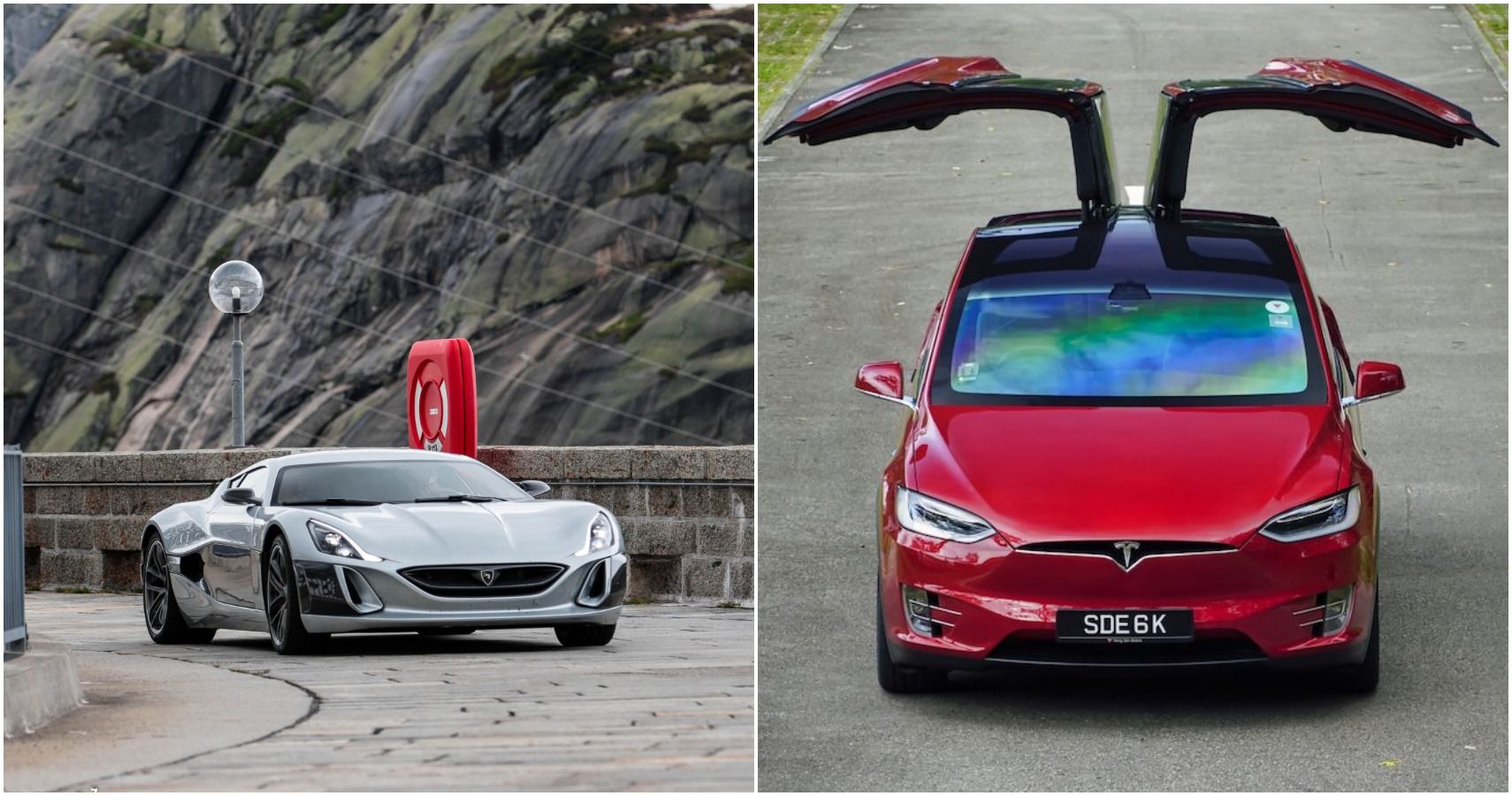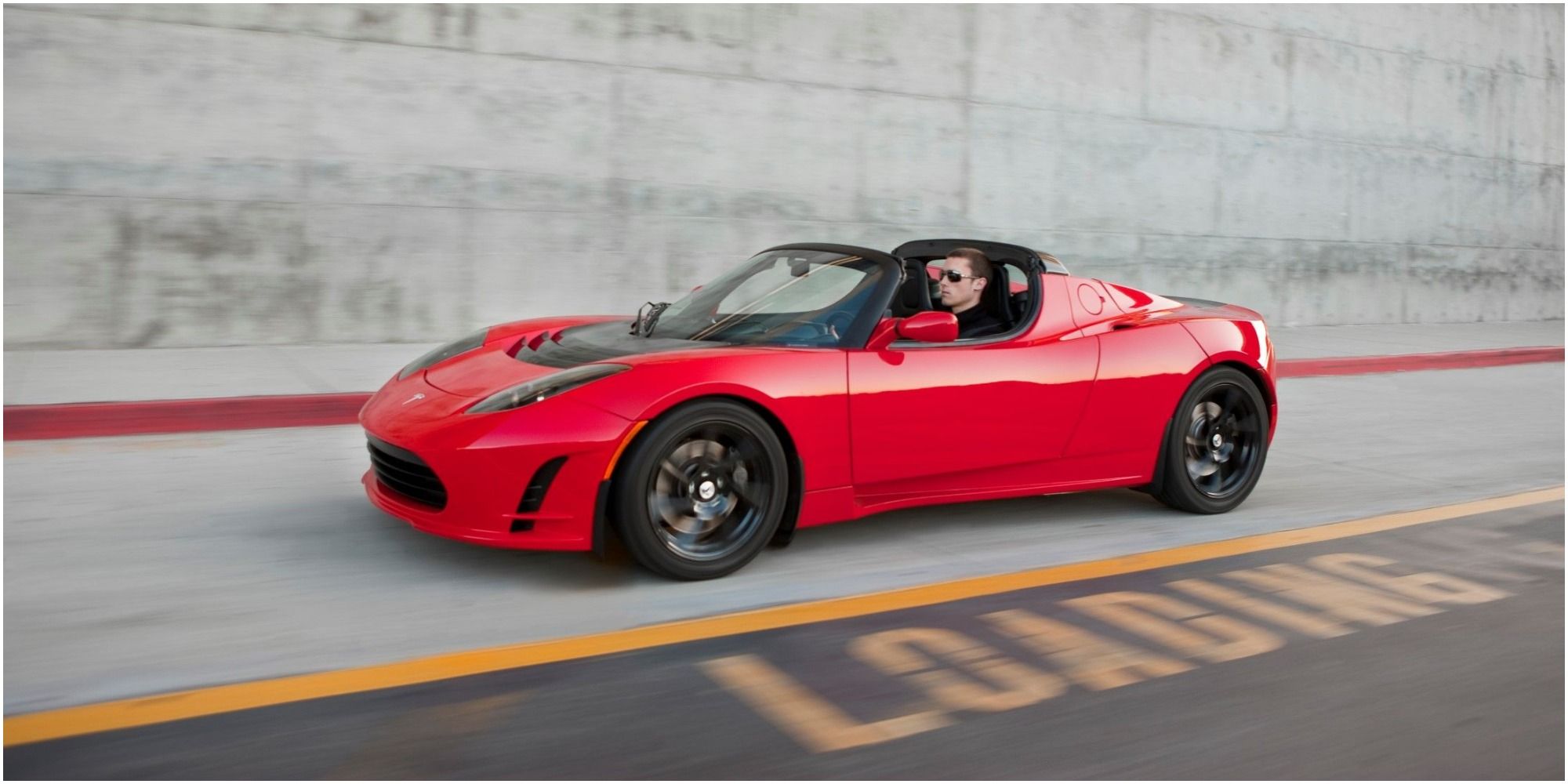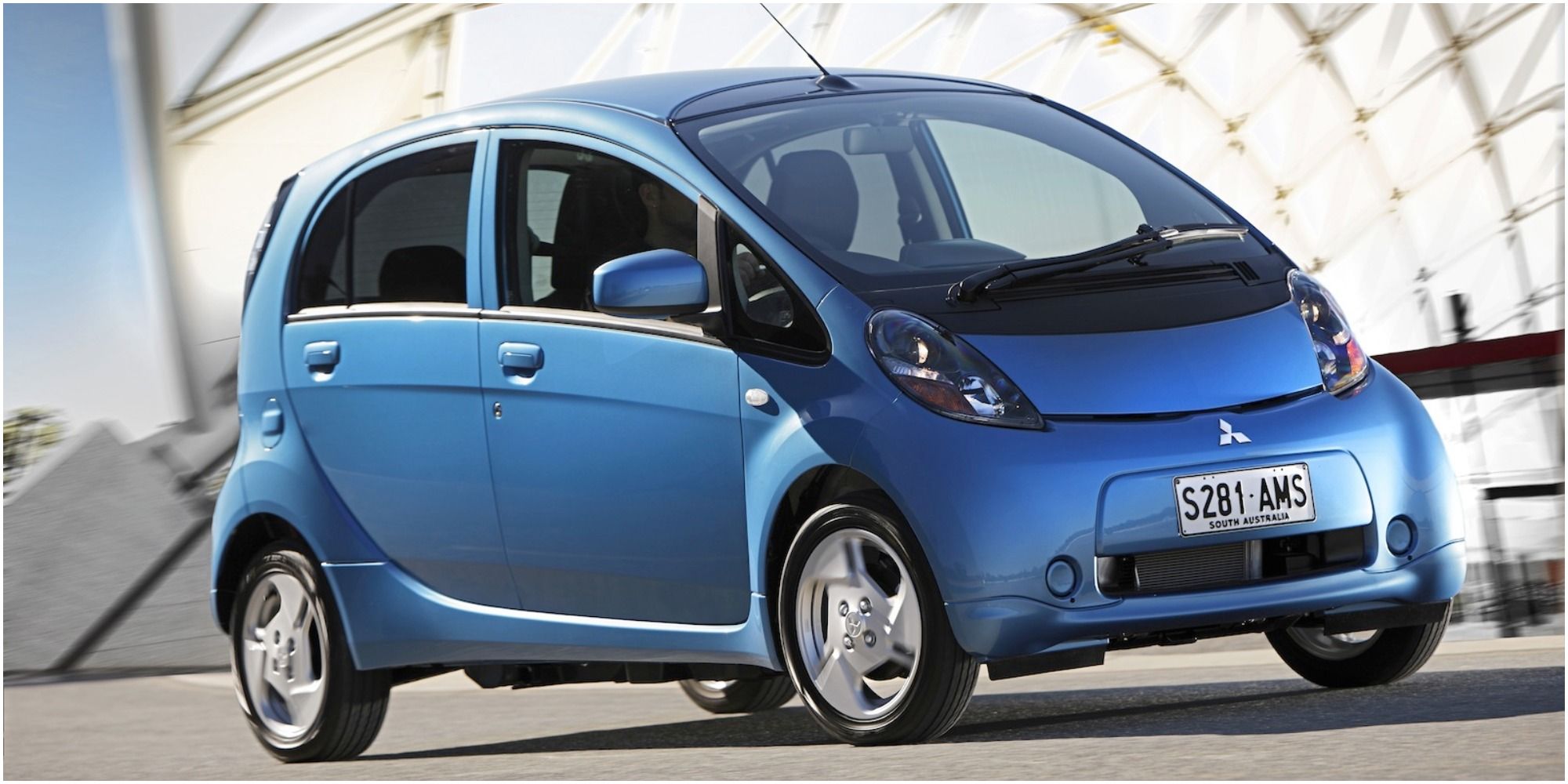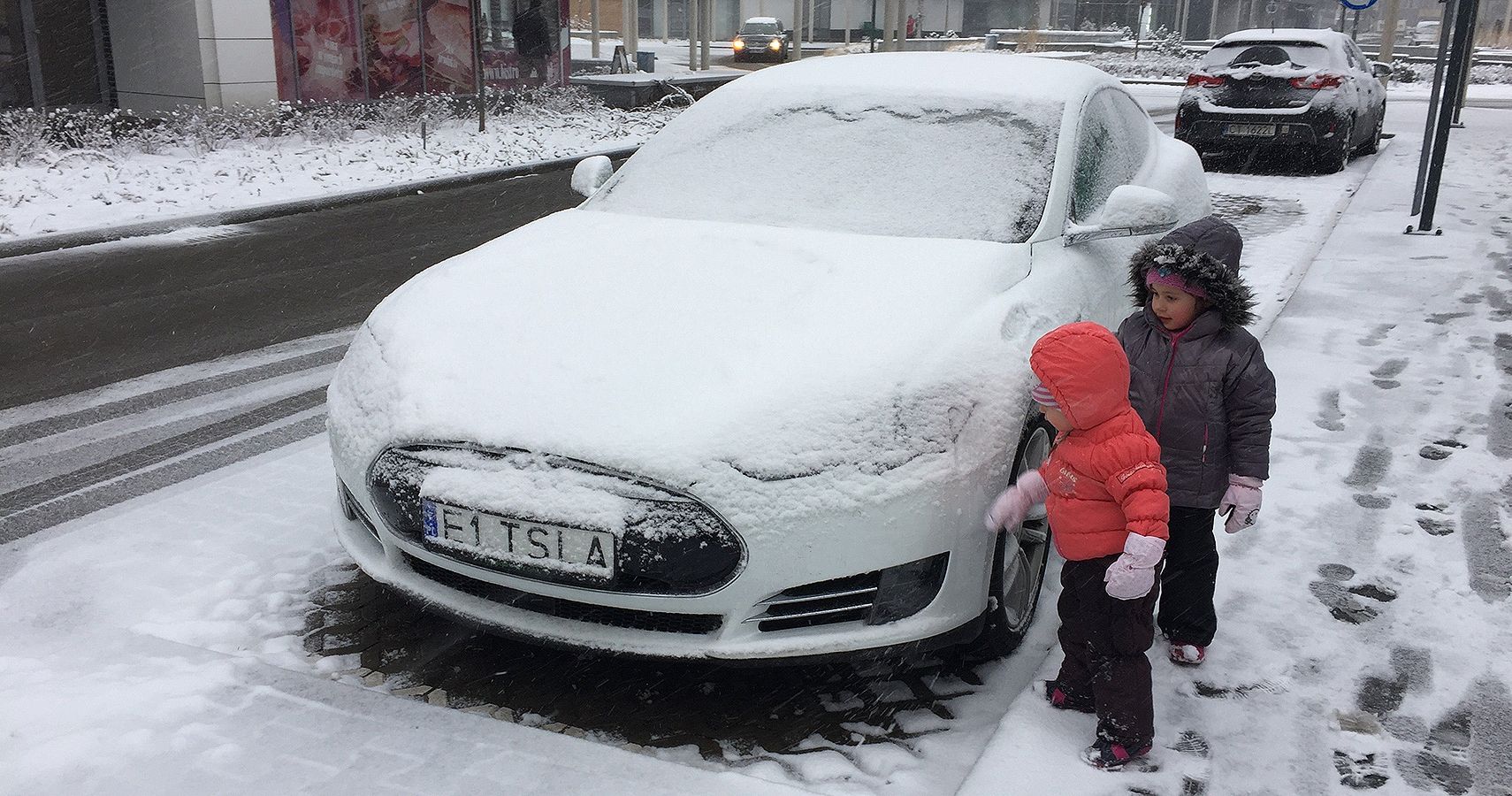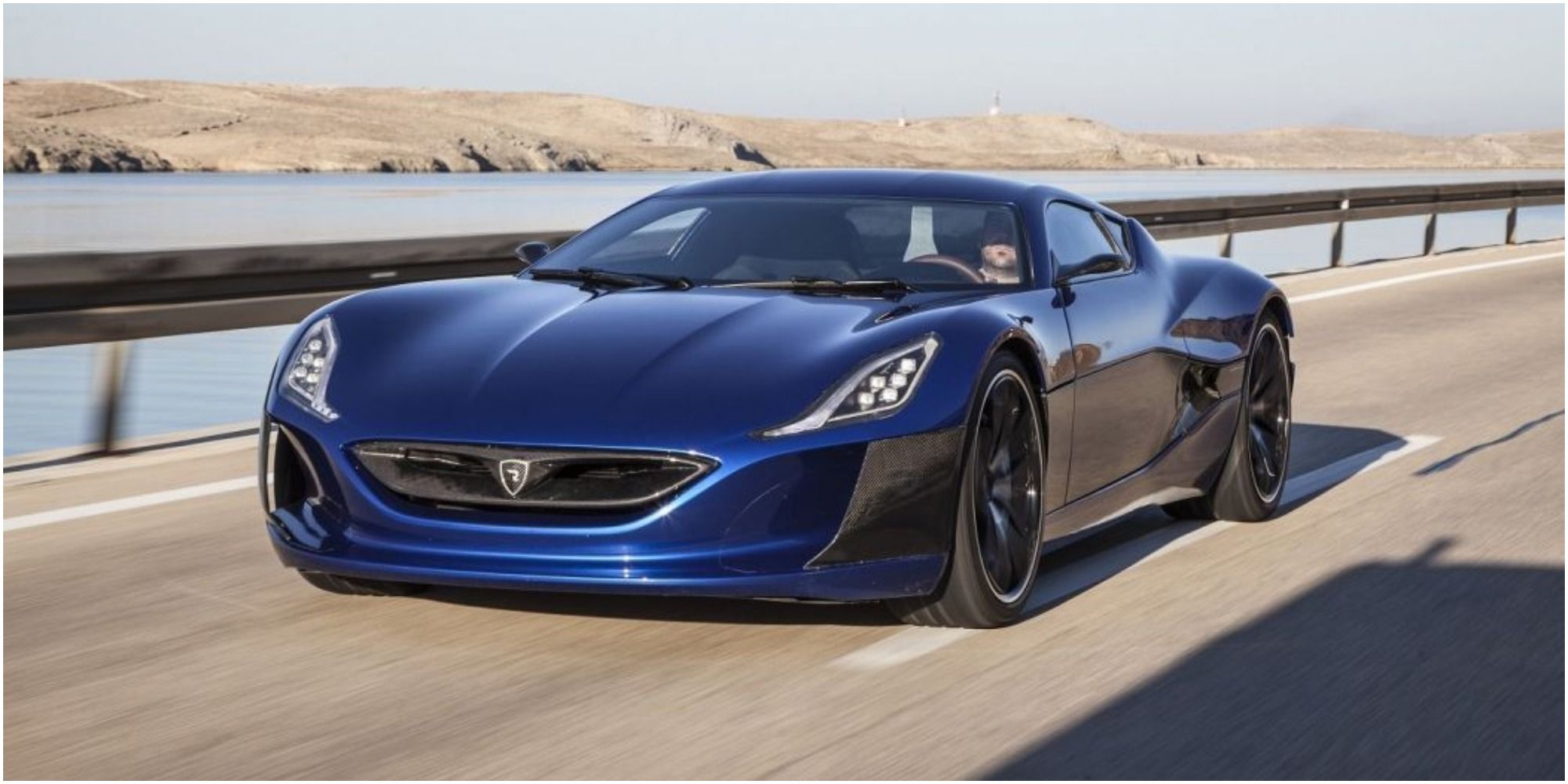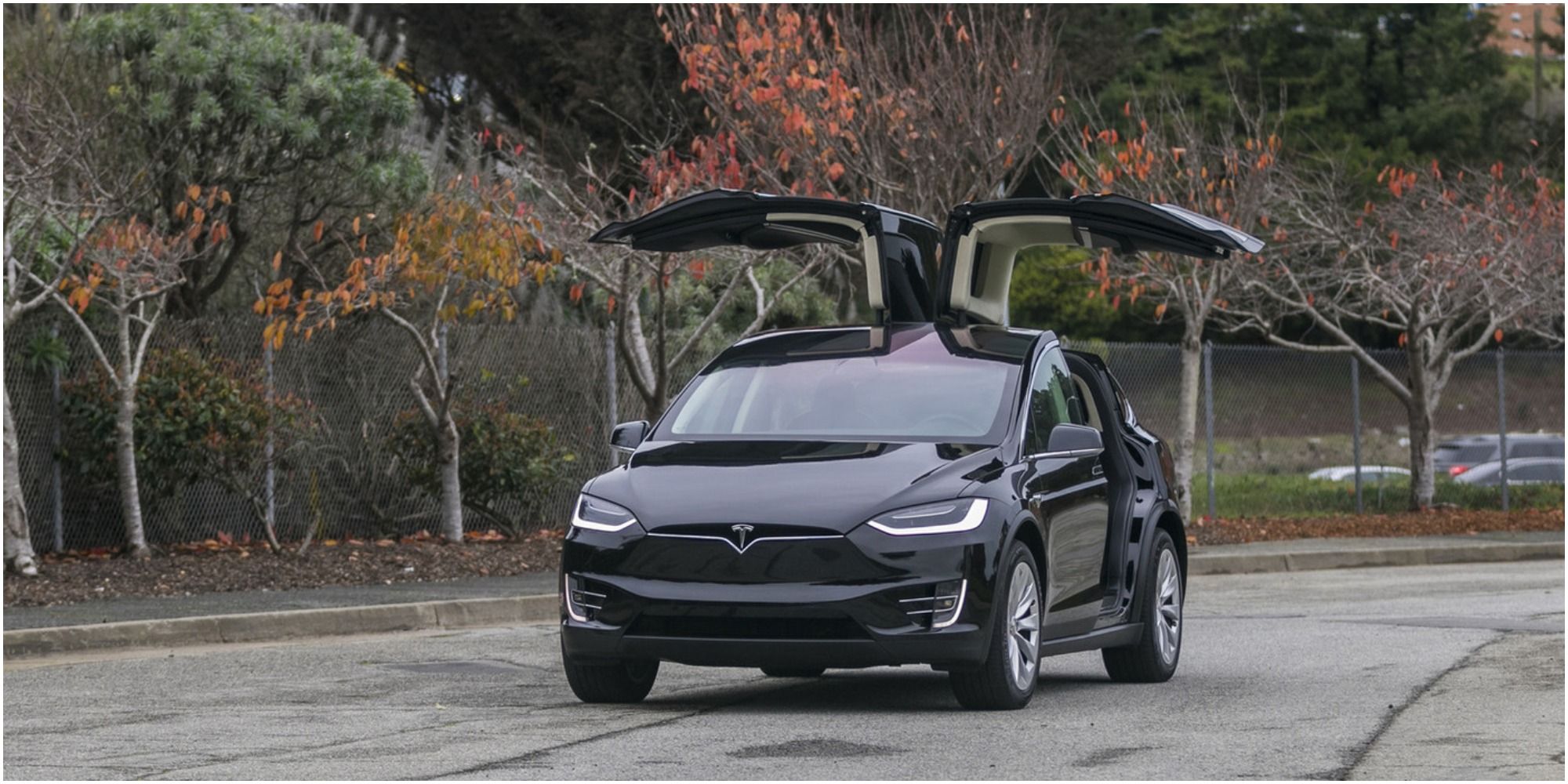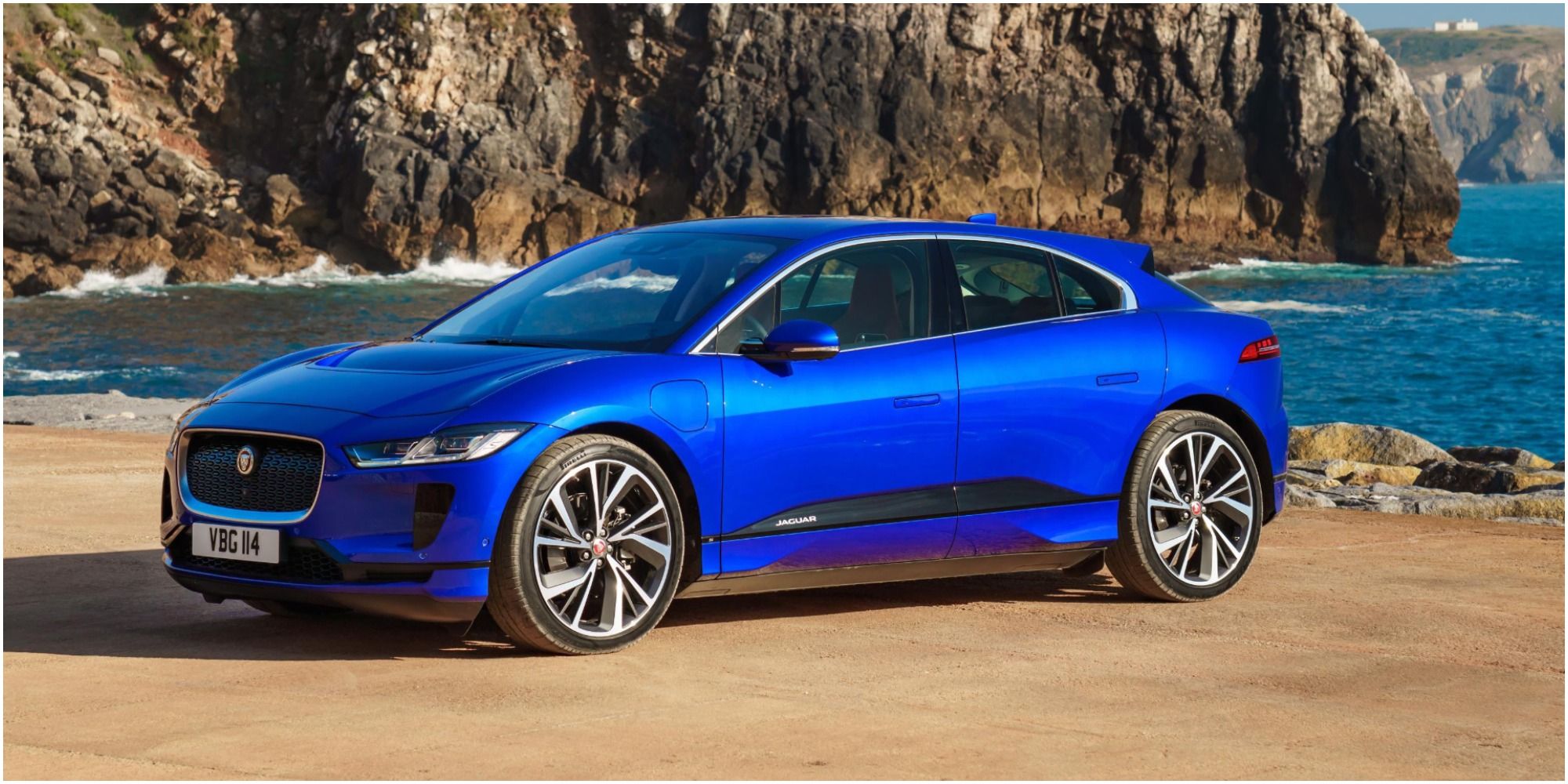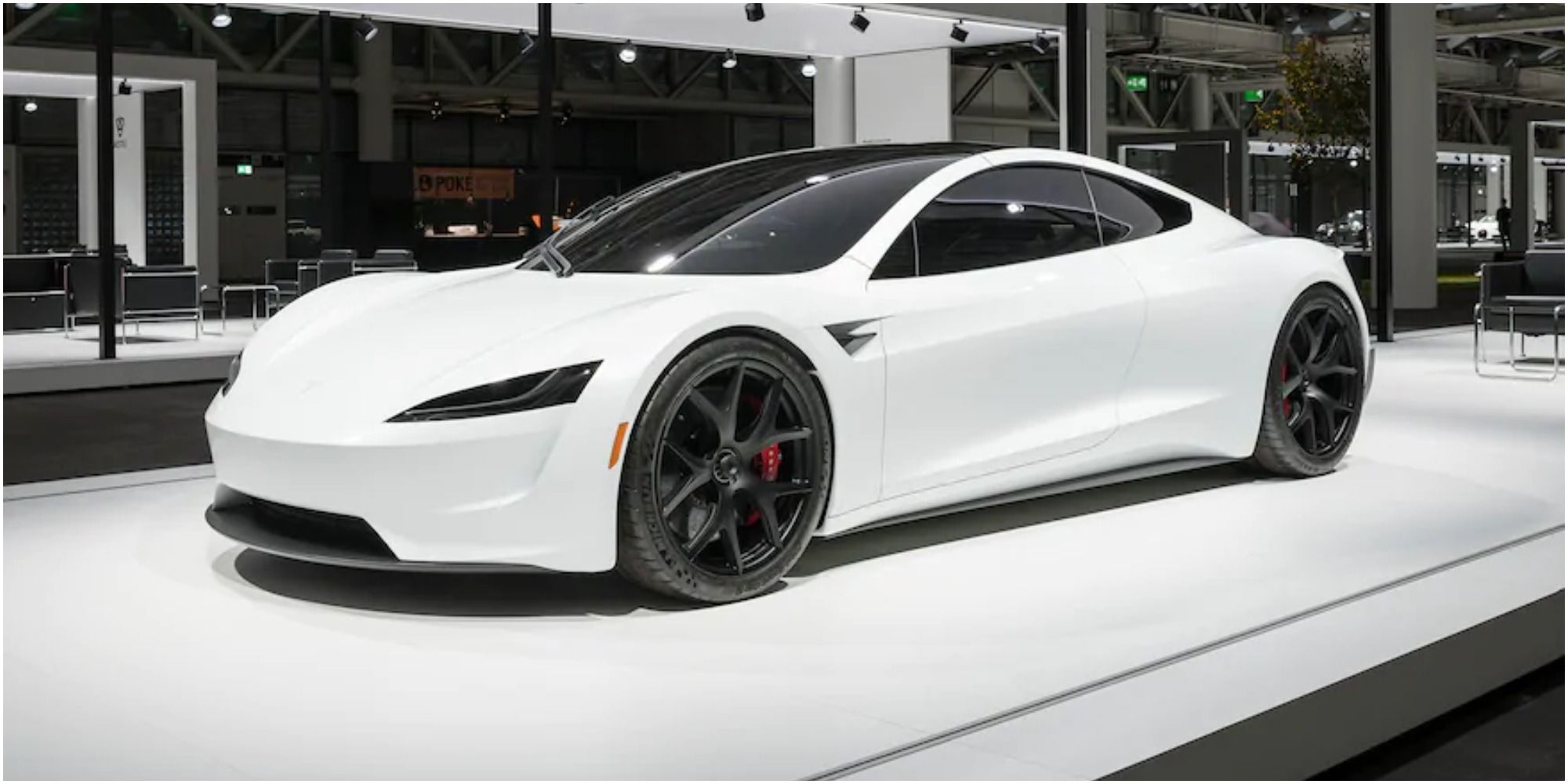With the world finally transitioning to fully electric vehicles, we're arguably living in the most important decade in recent automotive history. That said, each electric car on this last has played a major role in shaping and influencing the direction of the EV industry. Though companies have already announced a myriad of new fully-electric models to be released as of 2020, it's the cars on this list that helped pave the way for those amazing vehicles of the future.
From electric city commuters to luxury sedans and cutting-edge hypercars, the list will showcase how the electric vehicle market developed in the past few years and just how far the automotive industry has come. Here are the 10 most important electric cars of the 2010s.
10 Tesla Roadster (2008)
Long before Tesla's Model S took off, the company had produced an all-out electric supercar based on the Lotus Elise chassis, dubbed the Roadster. Tesla's first attempt at an electric sports car, which was sold from 2008 through 2012, only produced 248 horsepower and 200 lb-ft of torque, yet its price was close to $100,000.
Therefore, it's understandable why Tesla only managed to sell about 2400 units of the Roadster. Fun fact: in 2018, the Roadster became the only production car ever launched into orbit, with a dummy in a spacesuit sitting behind the wheel.
9 Mitsubishi i-MiEV
The i-MiEV might be small and unimpressive, but launched all the way back in 2009, it holds the title as the first fully-electric production car suitable for the highway. And, though modern EV enthusiasts will scoff at the i-MiEV's miniature stature and unimpressive electric range (100 miles), the car was undoubtedly ahead of its time.
In fact, due to its affordability (under $25,000) and low energy requirement, the i-MiEV remains a popular and sustainable choice for buyers to this day, especially in Japan.
8 Tesla Model S
Though the Model S is technically not the first production Tesla sold by the company, its success made it synonymous with the term "electric car." Since 2012, the Model S has been the most desirable consumer electric car.
With their P100D model, sporting a three-phase 750-horsepower electric motor, Tesla was able to show just how superior electric cars can be to their gas-powered counterparts. In fact, the Model S' P100D variant still holds the official record for the quickest production car, clocking 60 mph in just 2.3 seconds.
7 Nissan Leaf
Nissan was among the quickest companies to jump on the EV bandwagon with its 2010 Leaf model. When it was released, Nissan Leaf became the first fully-electric five-door car on the streets. The company knew exactly which segment to target, so, instead of a high-performance luxury car, the Leaf was an affordable and practical vehicle that promoted sustainability.
You can still pick up one of these for roughly $30,000, packed with a 40kWh battery good for at least 150 miles. After having been in production for almost 10 years now, this approach has allowed the Leaf to rank as the most popular electric vehicle ever created, selling over 400,000 units worldwide.
6 BMW i3
Offered to the public as of 2013, the i3 is BMW's first and most popular all-electric car. The car's success relies upon the balance it strikes between an affordable luxury five-door hatchback and a fully sustainable EV. Having been an early entrant in the EV market, the i3 has managed to attract quite a large customer base, placing BMW ahead of the competition in that segment.
Though today some competitors such as the Tesla Model 3 have managed to catch up to the i3, offering the same amount of luxury at a more affordable price, the i3 remains one of the first and most important affordable family EVs to hit the market in the early 2010s.
5 Rimac Concept One
This revolutionary Croatian EV startup company was first put into the spotlight when it developed one of the most refined and impressive electric luxury supercars on the market in 2013 - the Rimac Concept_One. An early entrant into the electric hypercar market, the Concept_One features some of the most advanced technology and performance of any car in the world. We're talking 1224 horsepower and a top speed in the ballpark of 227 mph.
Today, Rimac is proudly awaiting the official release of their new and even more incredible electric hypercar dubbed the C_Two, which is expected to once more disrupt the automotive market with features such as active aerodynamics, performance monitoring ...oh, and a ludicrous 1914-horsepower electric powertrain.
4 Tesla Model X
In 2015, the Model X became the trailblazer of modern all-electric SUVs. Priced similarly to the Model S, it offers a minimalist and futuristic, leather-clad interior seating up to 7 people.
However, its defining feature is the attractive "falcon wing doors" which swing open upwards, as opposed to regular rear doors. Notably, the combined power output of 762 horses, courtesy of the dual electric motor inside the Model X, makes it the quickest SUV in the world.
With its luxury, industry-leading technology, and impressive performance, the Model X immediately drew a large customer base and likely prompted many other companies to start developing electric SUVs as well.
3 Jaguar I-Pace
As an unexpectedly brilliant electric vehicle to come out of the company that has been intensely struggling for the past decade, the I-Pace definitely deserves a spot on this list. Jaguar was early to jump on the electric SUV bandwagon and still manages to provide an upscale experience at an extremely competitive price.
So, despite being one of the best fully-electric cars on the market, with a luxurious and spacious interior, forward-looking design, and a powerful (394-horsepower) engine, the I-Pace remains available for a starting price of about $70,000, and a real threat to competitors such as Tesla and now Porsche and Audi.
2 Tesla Roadster
For the 2020 model year, Tesla is finally bringing back its first all-electric supercar with a much-needed rework, and this time it's on everyone's wishlist. The car takes what makes all Teslas so notorious—luxury, efficiency, and performance—and elevates that to the extreme.
It's supported by the most massive battery pack ever used in a Tesla: 200kWh good for 620 miles on a single charge. Though we still don't have the full specifications, we know the car will produce a monstrous 7400 lb-ft of torque, allowing it to reach 60 mph in an eye-watering 1.9 seconds.
1 Tesla Model 3
In 2017, Tesla finally released an electric car for the masses, dubbed the Model 3. Priced at approximately at $35,000, the base version astonished the automotive industry with the level of technology, luxury, and power it offered.
The Model 3's interior assumes a highly minimalist and futuristic approach while providing all the necessary features via the massive infotainment touch-screen panel. The electric motor under the hood provides the car with a hefty 271-horsepower, while the performance version pumps out over 500, launching the car to 60 mph in just over 3 seconds.
Providing such a powerful and technologically-advanced fully-electric sedan at an affordable price was unheard of, which explains why Tesla received 325,000 orders after the mere announcement of the Model 3.

